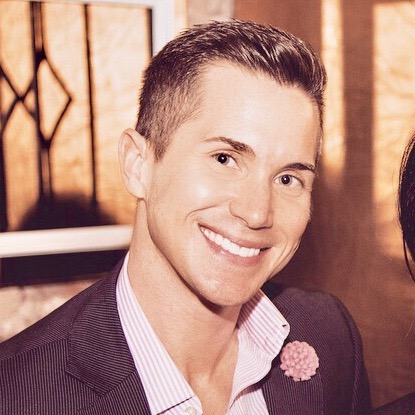Broadway Dads & Dangerous Legacies: When Musicals Wrestle with Toxic Masculinity
- Waymon Hudson

- Sep 28, 2025
- 4 min read
Updated: Nov 19, 2025
What makes a man in a musical?

Is it the voice? The violence? The vow to survive no matter the cost?
In the golden age of Broadway, fathers were often noble, distant, or already dead — think Fiddler on the Roof, Carousel, or The Sound of Music. But in modern musical theatre, we’re watching a new kind of paternal figure take center stage: one fueled by fear, pressure, and pain.
These aren’t just dads. They’re dynasties.
And their songs? Explosive.

💣 The Sound of Patriarchy
Fathers in musicals don’t just speak — they declare. Their numbers often come brash, brassy, and unrelenting. From Sweeney Todd’s vengeful lullabies to King Triton’s thunderous warnings, the paternal voice often comes with a cost: conformity, obedience, silence.
These songs ask their sons to fall in line — or fall apart trying.
🎭 Broadway Musicals Where Toxic Masculinity Gets Messy
Let’s break down a few iconic examples where musicals have tackled fatherhood and the scars it leaves behind:

"Dear Theodosia" – Hamilton
A haunting lullaby from fathers trying to rewrite the mistakes of their pasts… only to fall victim to legacy anyway.
"Father to Son" – Falsettos
A heartfelt attempt to pass wisdom, clashing against the backdrop of queerness, identity, and grief.
"You’ll Be Back" – Hamilton
Satirical, yes. But this King's “breakup song” with the colonies is a perfect metaphor for abusive parental control masked as love.
"Epic III" & "Papers" – Hadestown
Hades is both boss and father figure. His music is mechanical, controlling, all about keeping Orpheus and others in line.
"Cool" & "Gee, Officer Krupke" – West Side Story
The Jets mock father figures, law, and structure — but their anger reveals the absence of role models and safe masculinity.
Each of these songs reveals something fundamental: boys are taught how to survive before they’re taught how to feel.
🧨 Speakeasy’s Marco: Legacy or Love?

In Speakeasy, that pressure explodes in the number “Family Business.”
Marco is a bootlegging kingpin. A man carved out of Prohibition-era survivalism. And he wants his son Rome to carry that torch — whether or not it burns him alive.
“Soft boys bruise where knives won’t miss —And dreams don’t buy a life like this.”
This isn’t advice. It’s an ultimatum.
Marco believes the world is violent, so his son must be harder. Meaner. Less like himself.
💥 Merc: The Queer Protector

But Speakeasy doesn’t let that go unchallenged.
Enter Merc — Rome’s best friend, queer protector, found family, and reluctant enforcer. In the same number, Merc pleads:
“Rome? He’s got a better plan... Maybe he’s more, a better man.”
Merc sees Rome’s softness as a kind of power — one forged not in fists but in poetry. He tries to shield him from the toxic legacy Marco demands he inherit.
This tension builds — musically and emotionally — until Marco silences Merc with violence- a slap across the face. But it’s not just a slap. It’s a line in the sand.
A declaration:
“This ain’t a life for tender skin… You want to last? You learn to win.”
🎧 The Sound of Survival

“Family Business” is brutal. It’s toxic masculinity legacy scored in Broadway minor chords and clenched fists. But it’s also honest.
Because like so many musical fathers before him, Marco isn’t just singing to his son — he’s singing about himself.
He’s terrified.
Told his mom soft boys don’t survive… Weak don’t win. Weak won’t stay alive.
Terrified that softness will get his son killed.
Terrified that the world isn’t changing fast enough for a boy like Rome to survive in it.
Terrified that love and poetry can’t beat bullets and blood.
And that terror makes him lash out. Just like far too many men do in real life.

🕊️ What’s Next for Rome?
That’s the question Speakeasy's Act 1 leaves us holding.
Rome is a poet raised in violence. A tender boy who learned to fight. And in upcoming numbers like “Last Call” and “Somewhere in the Smoke”, we watch him wrestle with those contradictions.
Because in musicals — as in life — the hardest thing isn’t surviving. It’s surviving with your softness intact.
📺 Don’t Miss the Breakdown

🎥 Watch the full Behind Broadway Episode: Family, Fire & the Fight to Survive
Read more Behind Broadway Breakdowns:
Learn about classic broadway song structure and Jules' character arc in Speakeasy:
Read the arc on Broadway's Soft Boys, Masculinity, and Rome's arc in Speakeasy:
And now we're starting on Queer Broadway, longing, love, and Merc's arc in Speakeasy:
And follow Addie's journey as we explore rebellion, freedom, and breaking the mold:




Comments